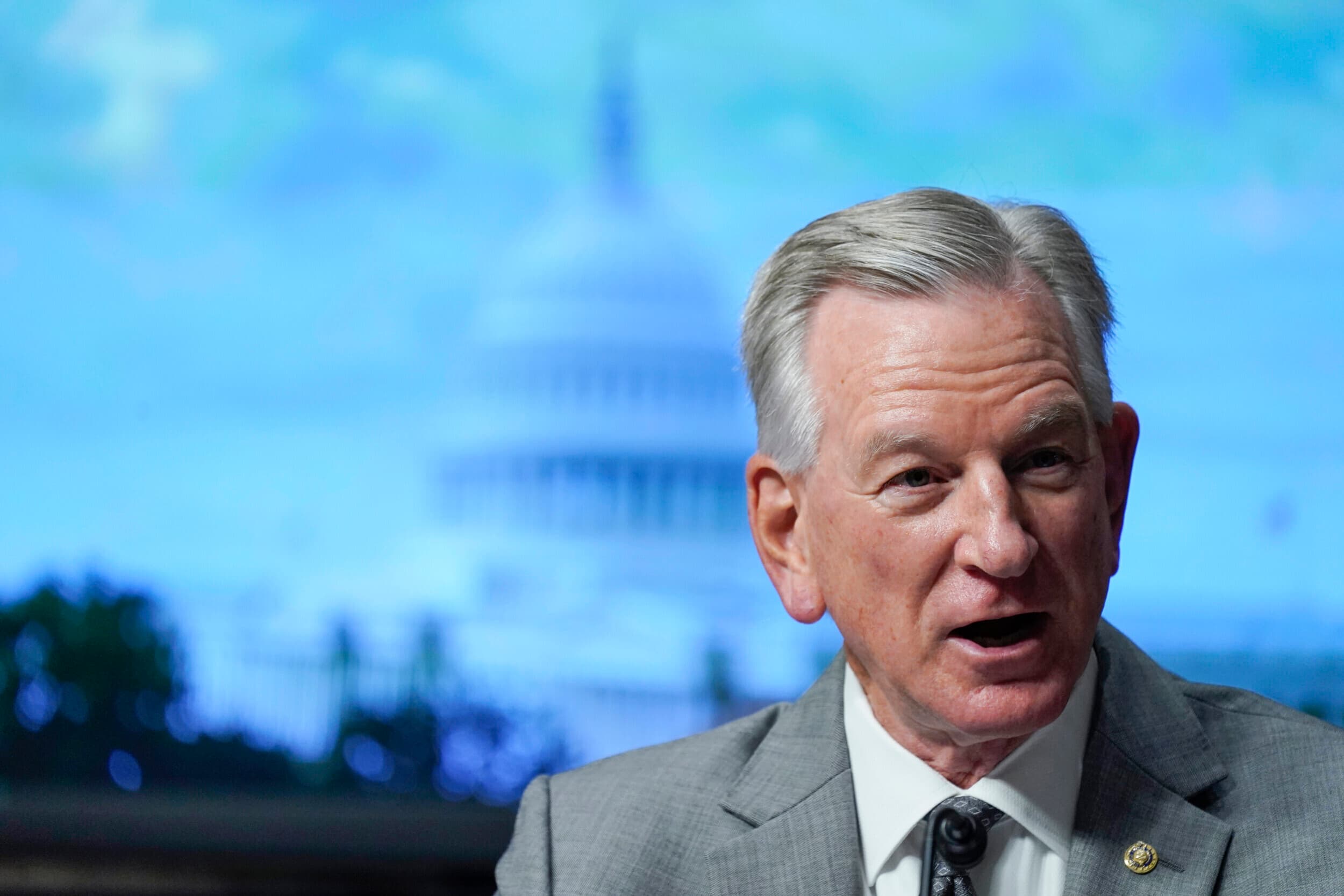Like any other way of life based on self-rule, ours can be re-founded only by the people themselves.
Editor’s Note – This essay was originally published by the American Mind on June 22, 2021 under the title, “To Rescue a Nation.” The late Angelo Codevilla explains what is required of a leader, when, as is the case today, it is necessary to rescue—or re-found—a country.
A leader must, by definition, set himself apart from the cause he leads, but at the same time, he must “dissolve” into that cause. He must make it clear that the cause is greater than himself just as he inspires the people’s dedication to a cause greater than themselves. His purpose and character will define the substance of the cause and provide its cohesion. For Washington, Lincoln, or Churchill, that substance and cohesion were necessarily unique to their crises.
In our crisis, a leader must make it clear to citizens that we are at war, that our choice is between American freedom and Woke tyranny. It’s one or the other. There is no avoiding the issue. And everything we revere and hold dear is at stake.
Codevilla argues that Donald Trump has been deficient as a leader because he has made the cause too much about himself. Fair enough. But we must fight with the leaders we can get. So far, Trump is the best we have. Clearly he understands we are at war. When he gets back into office, we can expect him to do everything in his power to eliminate the cancer that is the woke regime and to fight resolutely for the American way of life.
Peoples become nations by following those who lead them to worship the same God or idols, and to act habitually as they do. The Greeks called these habits “ethics.” These change for good and ill as prominent persons change, or develop new ways of life, or foreign influences impose themselves. The general population tends to follow. Plato and Aristotle led subsequent generations to note that peoples tend to take on their leaders’ character.
Some see such changes as betrayal. If these alienate a large enough proportion of people, the body politic itself loses the capacity to act as a whole. Enough disarticulation, and the body politic ceases to exist for practical purposes. Serious changes, regardless of their sources, lead some to want a resetting the country on what they regard as its proper basis—or outright resuscitation.
Machiavelli wrote that doing that amounts to re-founding a nation, and that this is considerably more difficult than founding one in the first place.
What does it take to re-found a nation? The question is lively for twenty-first century Americans because the changes that have taken place in the bipartisan ruling class that controls nearly all our institutions have explicitly denied and denigrated what had made America itself. Today’s ruling class leads and even forces Americans to act, speak, and think as if all that they had thought good were bad, and vice versa. Almost as if a vengeful power had conquered the country. At least half the country yearns for some kind of rescue.
Though history does not lack examples of nations rescued and refounded, most rescues involve overthrowing the dominion of foreigners rather than of mutated ruling classes. But as the Book of Exodus shows, the removal of foreign influence is almost always much less than half the battle. Reference to foreign oppression is often a necessary, but always an insufficient factor. Charles de Gaulle’s success against the Germans was not enough to overcome resistance to his efforts to restore France’s corrupt body politic. Without a foreign focus however, refounding can only be a civil war of variable temperatures. Abraham Lincoln’s failure to avoid the Civil War is as clear an example as there is.
Machiavelli’s near equation of reform with re-founding mostly abstracts from the fact that, for nations and regimes founded on and tailored for the people’s characteristics, repeating something like the founding is not possible once these have changed. Peoples are far less malleable than regimes.
On the one hand, successive generations of Romans were able to re-set Rome more or less on the basis on which Romulus had set it by killing his brother, Remus, who had trespassed on what became the Urbe’s fundamental law: war against outsiders. Successive Fathers of the Fatherland reaffirmed that law. And when Cleomenes judged that Sparta’s ephors had violated Lycurgus’s constitution, he deftly re-established it by killing the ephors and their followers. The Soviet regime’s fundamental law was the Communist General Secretary’s murderous discipline of the Party, which suffused society with fearful uncertainty. When Mikhail Gorbachev tried to rescue tyranny from the feudalism into which it had fallen under Brezhnev, he might well have succeeded had he been willing to kill as Lenin and Stalin had done.
Doubtless, rescuing disrespected constitutions has always required and will always require undoing any number of enemies.
But there is little historical evidence that peoples who had constituted themselves nations on the basis of freedom can convert that nationhood’s lively memory into rebirth.
Self-government ever reflects self, and lost civic virtue is almost as unrecoverable as lost virginity.
Divisive leadership
The political conflict in which we are engaged pits some Americans who revere the legacy and memory of the Republic founded in 1776-1789 against those who despise it and have corrupted the Republic’s institutions into an oligarchy.
The concentration of corruptions in the ruling class does not minimize the reality that a part of the U.S population are that oligarchy’s eager subjects, either uninterested in or opposed to any kind of restoration. We who resent that our ruling class’s corruption deprives us of self-government are another part. Hence governing ourselves again, resetting America on the bases on which it was founded is necessarily by, of, and for only we who want it.
In short, America has changed so much from what it had been just a half century ago that any restoration implies some sort of mutual alienation, separation, or secession, whether as a substitute for civil war or as a result of it. What kind of conflict might it take to rescue ourselves from what we regard as contemporary America’s corruptions?
The process of rescue necessarily consists of republican Americans’ would-be leaders convincing their followers to ignore, to disdain, to resist, the directions from society’s commanding heights in favor of what they believe is more consistent with what America had been and should be again. It is essentially a revolutionary (or counter-revolutionary) process that requires equal doses of negation and affirmation.
Silent secession by alienated individuals is inevitable and deadly. In 1967, hippie songster Arlo Guthrie invited those who wanted to drop out of the America they despised to mock its authorities by singing them the meaningless “you can get anything that you want at Alice’s restaurant.” Millions of East Germans said to themselves “ohne mich,” without me, as they pretended to go along. Many more Soviet subjects also kept their heads down as they spat out official lies with ever more evident mockery. Live not by lies, said Solzhenitsyn. In the long run turning one’s back, tacit hemorrhage of legitimacy, dooms regimes. But it reforms and refounds nothing.
large terms, to seek commitment to themselves. There is no greater pitfall. Effective espousal of a cause means that the leader dissolves into the cause.
A serious attempt to rescue Americans from an alien regime at war with our way of life awaits the rise of a person to embody their sentiments, focus and lead them to act successfully in their own interest.
Leadership and identity
Though it seems obvious that trying to lead, or even to take part, in such an enterprise requires outsized self-confidence, historical examples show that the authority by which some have rallied peoples behind flags picked from the dirt flowed more from the flags themselves—from the enterprise itself—than from any attempt by the leader to project himself onto them. Presuming to lead something far greater than one’s self on the basis of that self is likeliest to prove mere conceit. In fact, those who have effectively placed themselves at the head of nations became great by becoming one with causes that daunted them, as they should have.
Moses first rejected his comfortable place in Egyptian life by protecting an Israelite. But when the call came from the Burning Bush, Moses begged off. Not me. “I am slow of speech.” But the voice from the fire told him that rescuing Israel was not about Moses. It was what I Am wanted done. He would tell Moses what to say and give what help was needed. Moses’ insufficiencies mattered less than the cause.
Thus did Moses remind his people that they were the sons of Abraham, Isaac, and Jacob, bound not to the Egyptians, but by covenant to serve the one true God; and that this God was in the process of rescuing them. At every point in the Exodus, Moses pointed to the signs of the Lord’s sustaining power. Moses organized them for survival and war. His successes rallied the people behind his leadership, and enabled him to lead them into a new covenant on the basis of the Decalogue. This re-founding arguably was as significant as Abraham’s original.
When France’s entire ruling class dissolved, delivering the country to Hitler, Brigadier Charles de Gaulle, stranded in London, begged that class’s better parts to take up France’s cause. All refused. He resisted instinctively the prospect of doing it himself, comparing it to “trying to cross the ocean by swimming.” But then, when nobody showed up to shoulder the impossible burden, he put his personal insignificance aside and told his radio audience that “some voice must be raised” against the collaborationists’ outrages, and that “tonight, that voice will be mine.” There was no other.
History affords few examples of a nation as thoroughly abandoned by its ruling class as France was in 1940, and of the re-construction of an alternate ruling elite—piece by piece, individual by individual—as Charles de Gaulle accomplished between July 1940 and July 1945. His circumstances were special, as all are. But what de Gaulle accomplished was nothing less than to re-infuse life into a mostly dead body politic, or to re-articulate a paralyzed one. He re-connected the French people with one another for collective action on their own behalf.
Founders and re-founders turn peoples’ resentments and hopes into action by asking them to think of themselves as together—as being in the same boat, as it were—and jointly dedicated to a nation greater than themselves; and hence to stand together, first in small, and then in ever greater ways. Inevitably, this means joining to overcome resistance. It means fighting and prevailing together in the name of their nation. Their successes counterbalance the inconveniences and burdens involved.
Moses secured the Israelites’ coherence and adherence to the Decalogue and the rest of the Law because he fed them, defeated the Amalekites, and put violent dissenters to the edge of the sword, in the name of the Lord. In the name of France, de Gaulle asked the people to regard occupiers and collaborators as future “prisoners or corpses,” and to act only as commanded by “la résistance” that he organized. But that encouragement was meaningful only because his troops, fighting alongside the Allies, delivered inspiring victories, such as at Bir Hakeim. That, and deft maneuvering against rivals, made possible the effective, triumphant, re-founding of the French nation on the Champs Elysees, August 26, 1945.
lie that this has anything to do with public health and leave no doubt that such passports—necessarily digital—inevitably would carry information that amounts to what the Chinese call “social credit.” States that prohibit them within their borders thereby de-legitimize them and make them impracticable nationwide. But only national-level leadership can make sure that the American people treat this power grab as part of the oligarchy’s war on republican America.
Universities and colleges, largely financed through government, having been the fountainhead of the oligarchy’s intellectual/moral character, nothing would reduce that fountain’s pressure on republican America like curtailing that financing. Republican America’s would be leaders could campaign to make individual institutions liable for unpaid student debts incurred there and make them into lending institutions. The Democrats’ objections notwithstanding, that cause would prevail, sober the educational establishment in countless ways, and lower tuition costs. National-level involvement in K-12 education also having been a source of inflation and all manner of corruption, and attempts to use the Department of Education to remedy the harm it has caused having miscarried, today’s leaders should, like Ronald Reagan, promise to abolish that Department. And then do it, reminding parents that if they do not educate their own children, the government is sure to mis-educate them.
The oligarchy’s perversion of American law, its partisan seizure of the justice system, of the intelligence agencies, and of the military, is the deadliest weapon in the war of annihilation it wages against our Republic. Led and largely staffed by partisan Democrats, scarcely distinguishable from the private corporations and institutions it oversees, the bureaucracy legislates and administers against the rest of us. The Constitution? “Are you kidding?” asked Nancy Pelosi. The oligarchy lets rapists and robbers walk, and punishes only demonstrations against its regime. The only crimes are political. The intelligence agencies know—only pretend to know—the evils of republicans. The armed forces’ leadership purges them as the enemy within. The oligarchy having seized our Constitutional system’s control, only a presidential election can take this weapon from them.
But wise leadership can circumscribe its effects as it prepares such an election. Depriving these perversions and seizures of any shadow of legitimacy is key. Any argument we make against bureaucratic, prosecutorial, or power-agency actions as if these actions were errors within our republican system only give credence to a falsehood, a lie. In fact, the bureaucracy’s, the intelligence agencies’, the armed forces’ actions against republicans are not errors. They are the oligarchic regime’s acts of war. As the majority of Americans grasp that reality, they deprive the regime’s powers of the legitimacy that gives them force.
Since the persons who actually wield these powers have careers that transcend electoral cycles, whoever would lead the republican nation can limit the harm they do by forcefully warning them that, sooner or later, a president will take office who, as the American republic’s vigorous partisan and unlike predecessors, will work terrible vengeance upon any and all persons who have served the oligarchy. Such leaders can show their seriousness by using whatever powers they may have to block funding for parts of the justice system, for the FBI and CIA, for certain of the armed forces’ activities, and especially for contractors whom they judge to be excessively tied to the oligarchy.
Success in battles to protect republicans will make it possible to work out some arrangement whereby peoples who now belong to two incompatible civilizations and who look for leadership to two hostile regimes may live in peace though intermingled with one another.
Working out such an arrangement is what rescuing America today means.
Federalism as never before
The more fine-grained the maps of the American people’s electoral choices, as well as of their opinions about the most important things, the clearer it is that its “blue”—Democrat, Woke, etc. —parts are concentrated not simply in California, New York, Illinois, etc., or even in the 16.7 percent of U.S. counties the Democratic Party carried in the 2020 election. Within those states, counties, and even within their cities (e.g., Los Angeles, Atlanta, and Austin) there are substantial parts the residents of which vote for and prefer differently. By the same token there are parts, even of Wyoming, as Woke as Venice, California.
This intermingling is more fraught with horrid consequences than the 19th century division between Northerners and Southerners. Both of those sides, Lincoln reminded them, “prayed to the same God.” Their family lives, their personal habits and preferences, were identical. All revered America’s founders, albeit somewhat differently. None doubted the others’ probity. Today, by contrast, America’s Woke side regards worship of the God of the Bible as the source of the White man’s rapacity, racism, and oppression. It regards the very words male and female, mother and father as poisonous, and rejects reason itself as the arbiter of argument in favor of identity. Through education, it enforces relativism regarding mathematics—never mind sexuality—and wholly denigrates anything that America has been other than the enabler of themselves.
decisions, it finds no barrier in the Constitution’s letter. Congress and the president can do this.
The alternative is already unfolding: people on all sides have learned that “stop me if you can” is today’s operative constitutional law. Pretty soon, everywhere will be a sanctuary for something. The willful and well-organized obey what they will and disobey what they dare. Better for all if the separation follows the law of logic rather than force.
What then?
Geographically, republican America will reign from shore to shore, from Canada to Mexico. Its birth rate, its educational system’s products, its economic vigor, its social stability, its degree of happiness will reflect how fit today’s republicans are for self-government. We cannot foresee and should not speculate how their successes and failures might affect Woke America. We can be sure however that radical de-centralization at home can only reduce the matters with which U.S. foreign policy deals, and hence increase the likelihood that they be dealt with soberly.
Angelo M. Codevilla (1943-2021) was a senior fellow of the Claremont Institute and professor emeritus of International Relations at Boston University.






.jpg)

